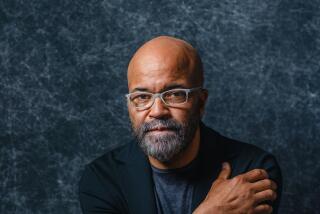Monk is still blazing jazz trails
- Share via
THE bubbly may still be flowing as this year’s crop of Pulitzer Prize recipients celebrates amid a flurry of news reports after Monday’s announcement of winners. All but overlooked has been what’s at the tag-end of the list: the Pulitzers’ posthumous recognition of renowned jazz artist Thelonious Monk.
The groundbreaking American pianist and composer (“ ‘Round Midnight,” “Straight, No Chaser,” “Ruby, My Dear”), who died in 1982, was honored with a special citation “for a body of distinguished and innovative musical composition that has had a significant and enduring impact on the evolution of jazz.”
The citation reflects the Pulitzer board’s move to broaden the definition of the music prize beyond classical music, according to Sig Gissler, administrator of the prizes.
Monk’s “contribution to American music and world music is inestimable,” commented noted jazz composer-pianist Muhal Richard Abrams, the Pulitzer music juror who proposed that Monk be considered for the special award.
“He influenced musicians who went on to be very great and near-genius in their own right,” Abrams said in a call from his New York home. “His efforts live on in the work of musicians who are working in the field every day.”
The jazz icon’s influence continues with the prestigious Monk International Jazz Competition, which recognizes gifted up-and-coming instrumentalists and composers, and the Thelonious Monk Institute of Jazz, established in 1986 at USC, where it offers training, performance opportunities, scholarships and educational programs to students from grade school through the college level.
“Thelonious Monk is one of the greatest composers of all time and the leading composer who bridged bebop to modern jazz,” said Jazz Institute President Tom Carter, via e-mail. Monk’s work and legacy live on at the institute, he added, through programs that expose young people “to the rich history of jazz and the importance of perpetuating and expanding this art form.”
A citation also went to historian Edmund S. Morgan. The two special Pulitzers are the first to be awarded since a citation honoring Duke Ellington posthumously in 1999. (Ellington was recommended for a special citation Pulitzer in 1965, but the board rejected the jazz composer for the honor).
Lynne Heffley
More to Read
The biggest entertainment stories
Get our big stories about Hollywood, film, television, music, arts, culture and more right in your inbox as soon as they publish.
You may occasionally receive promotional content from the Los Angeles Times.










